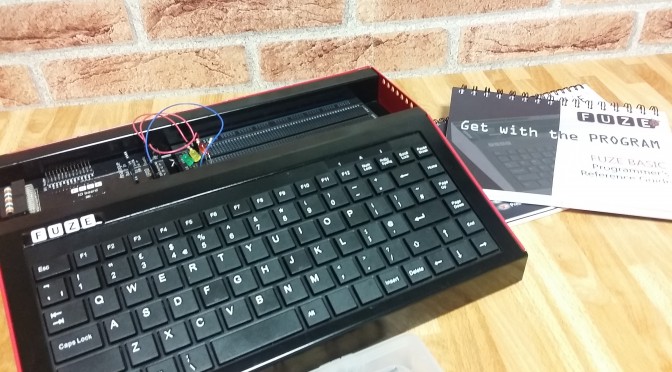Podcast: Play in new window | Download
Subscribe: Apple Podcasts | Email | TuneIn | RSS | More
Such are the strange times we live in, many of us now face working from home for the first time along with caring for our children.
I have worked from home extensively over the past 20 years and I thought I would try and share some tips on how I have been able to work effectively in a home environment.
This morning I spoke to James Hazell at BBC Radio Suffolk about the trials and tribulations about working from home. Listen in to the stream to hear what I had to say and especially the advice at the end.
Stay Safe and Healthy
If you have been given a laptop to use at home, then there is a danger that you may find yourself sitting in an armchair trying to work and you will soon find this isn’t going to work well.
- Set up a work environment in a spare room or even your bedroom where you can away from disturbances and distractions as best as possible.
- Find a comfortable chair and if possible sit near a window so you can get fresh air while you are working.
- Set up your computer, so that is a semi-permanent environment and will allow you to separate work from home and give you a place to ‘go to work’
- Get dressed, you don’t go to your place of work in your pyjamas, so again, getting dressed gets your prepared for work.
- Take plenty of breaks. If you have children at home, you will need to be able to give them attention. If you can set specific times during the day to stop work, get up and walk around and make yourself a drink.
- Try to begin and end your work-day as you would if you were going to your place of work. Let your employer know that these are your work times. Setting these boundaries will mean that you aren’t on-call 24/7.
- Most home-working requires an internet connection. Over the coming months, our communications links are going to be under a great deal of strain. The video streaming services are going to be used extensively and this will put a great deal of pressure on internet connection speeds. Home internet is very different to work internet due to what’s called ‘contention ratios’, so you should be prepared for slower than normal connection speeds.
- Ask your employer to provide you with a mobile device that can be used as a ‘tether’. This means that should traditional broadband experience issues, you can fall back onto connecting to the internet by connecting via a ‘personal mobile hotspot’.
- Make sure all of your internet-connected devices are up to date. This means ensuring anti-virus is updated where applicable and any operating systems updates on your computers, set-top boxes, TV’s, IpCams etc are updated
- Keep all of your battery-powered devices charged up, but don’t leave mobile phones plugged in all of the time as the batteries don’t work as effectively if they all continuously charged.
- Use a trusted VPN connection to secure your broadband connection further. I recommend Ivacy VPN. Using a VPN or Virtual Private Network secures your connection.
Finally, regardless of whether you are working at home or not, you WILL find the number of scam calls you receive will increase, mainly because you will find yourself at home so much more. NEVER give out any personal bank details over the phone including PIN numbers or passwords. Ignore all automated calls and just hang up. These people care little for the health or financial wellbeing of their victims. If in doubt, speak to a trusted friend or member of your family before taking any action that will cost you money.
Stay Well and see you soon!
Matt
www.thegadgetman.org.uk









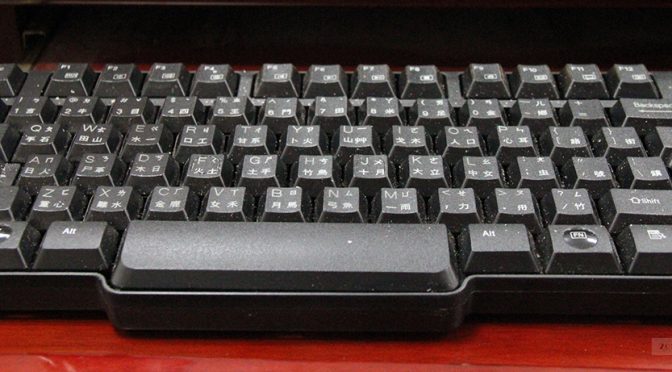


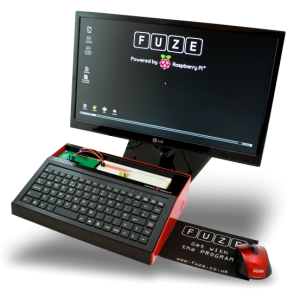 Back in the 1980’s the UK was a melting pot of computer development, back then you couldn’t visit a friends’ house without seeing a them huddled behind a television slowly tapping out computer programs from magazines on their newly purchased home computers. While the USA basked in the glory of the Apple II and IBM PC, in the UK we had our feet firmly placed on the ground and our wallets closed tight. In the States people were paying $2,500 for their computers, far too much for us in the UK, being much more cautious with our hard earned money! Instead we made our own computers, the amazingly popular Sinclair ZX Spectrum, BBC Model B, Acorn Electron and Dragon 32. All of these were home grown products which took the country by storm for a few short years, much cheaper than the US counterparts at £140 and much more fun, well until the IBM PC was licensed to the likes of Dell, HP and AST and the prices started to tumble to more affordable prices.
Back in the 1980’s the UK was a melting pot of computer development, back then you couldn’t visit a friends’ house without seeing a them huddled behind a television slowly tapping out computer programs from magazines on their newly purchased home computers. While the USA basked in the glory of the Apple II and IBM PC, in the UK we had our feet firmly placed on the ground and our wallets closed tight. In the States people were paying $2,500 for their computers, far too much for us in the UK, being much more cautious with our hard earned money! Instead we made our own computers, the amazingly popular Sinclair ZX Spectrum, BBC Model B, Acorn Electron and Dragon 32. All of these were home grown products which took the country by storm for a few short years, much cheaper than the US counterparts at £140 and much more fun, well until the IBM PC was licensed to the likes of Dell, HP and AST and the prices started to tumble to more affordable prices.
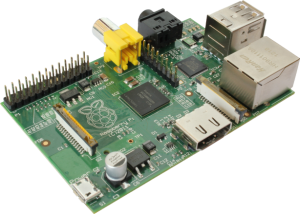
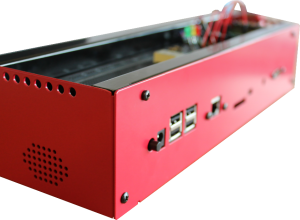 This is where Fuze comes in, by packaging the Raspberry Pi in a useable case (strangely evocative of the BBC Micro from the 80’s) with integrated keyboard and circuit prototyping board, the Fuze is being launched into schools as the ideal platform for Coding in the curriculum. The circuit board that sits on top of the Fuze allows for electronic design and testing that can be directly controlled from the included Fuze Basic programming language.
This is where Fuze comes in, by packaging the Raspberry Pi in a useable case (strangely evocative of the BBC Micro from the 80’s) with integrated keyboard and circuit prototyping board, the Fuze is being launched into schools as the ideal platform for Coding in the curriculum. The circuit board that sits on top of the Fuze allows for electronic design and testing that can be directly controlled from the included Fuze Basic programming language.

